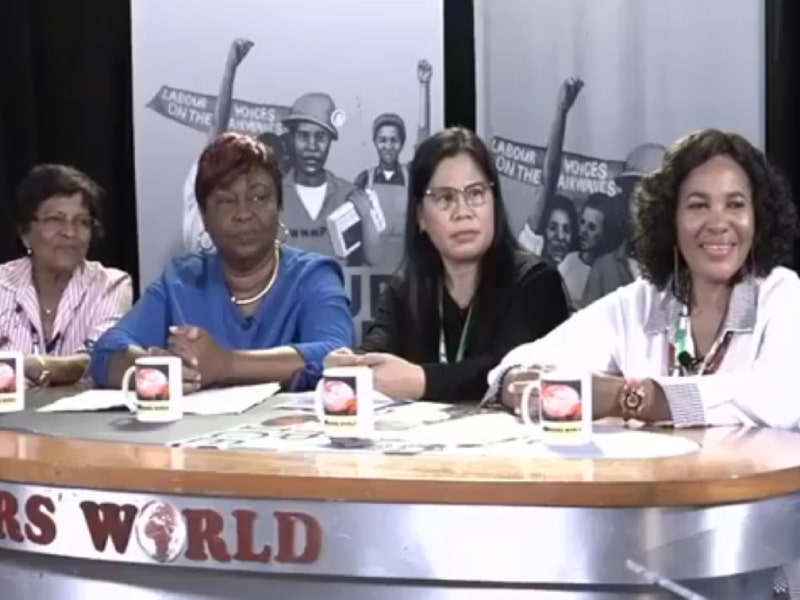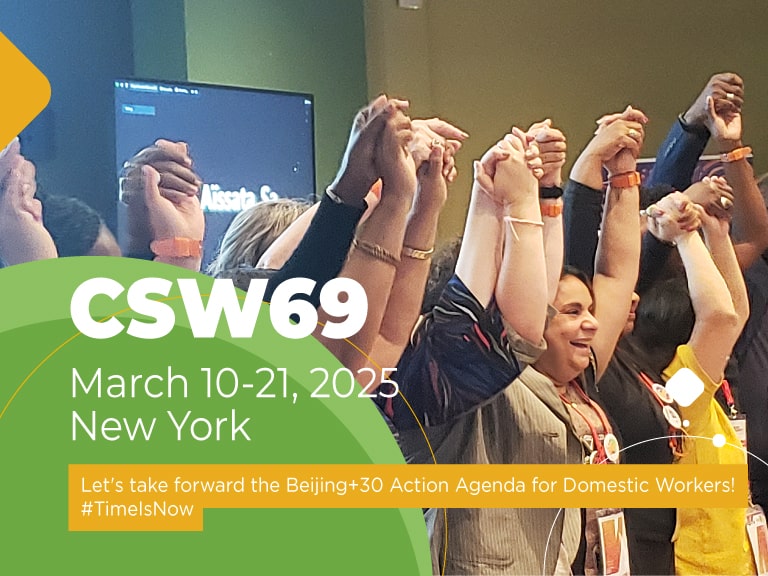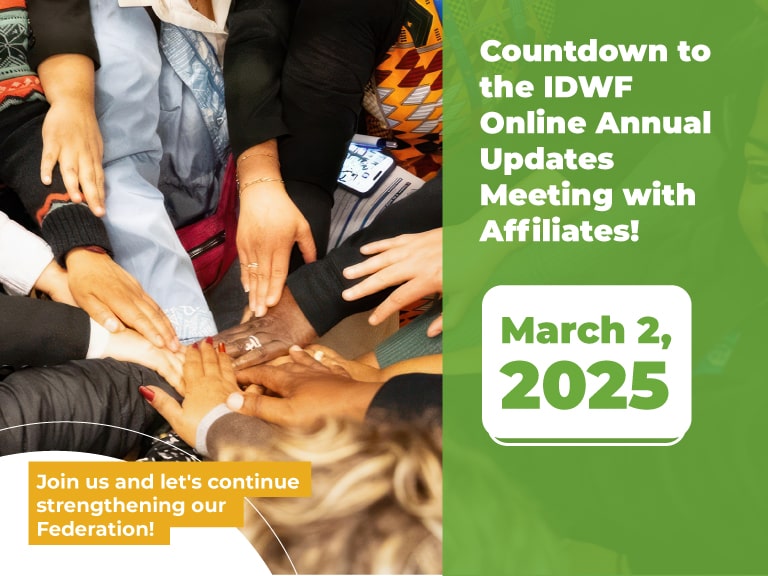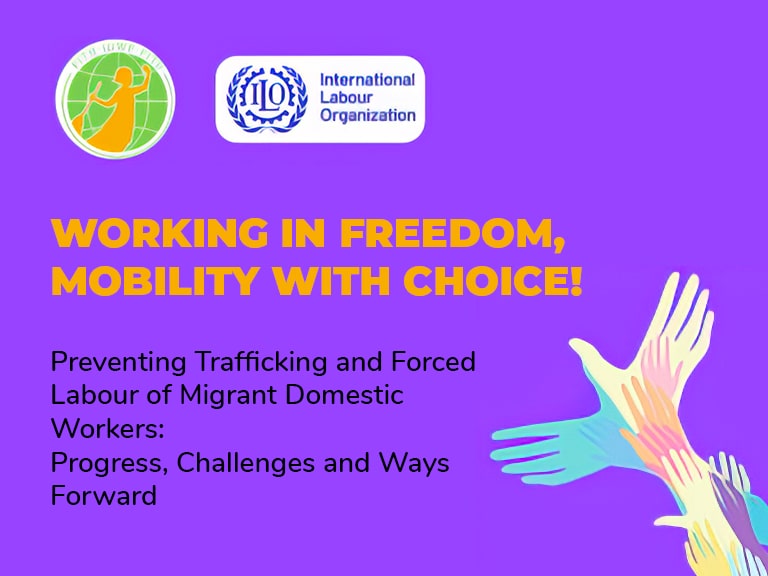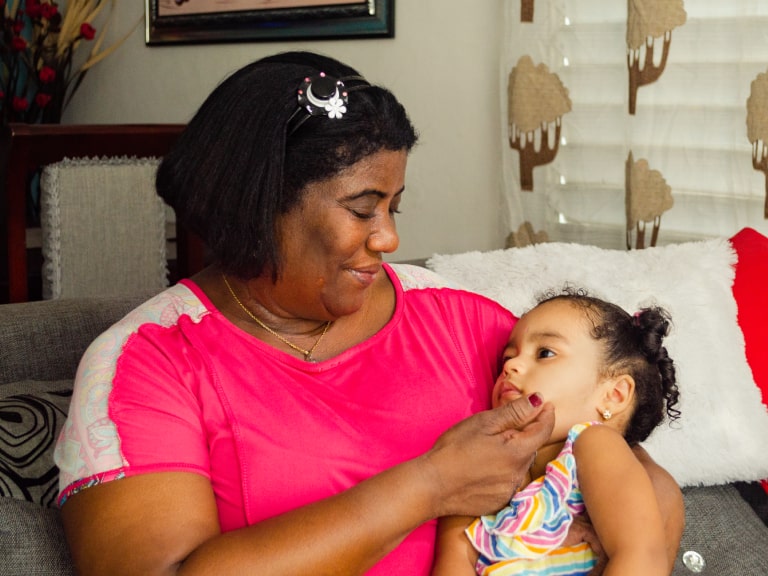- This event has passed.
TV show: Domestic workers – Their role in the economy and organising
November 15, 2018
Watch our sisters on the Workers’ World Weekly Labour TV Show 2018 (recorded) on Nov 15.
Details
Watch our sisters on the Workers’ World Weekly Labour TV Show 2018 (recorded) on Nov 15.
Topic: Domestic Workers – Their role in the Economy and Organising
- Malani Kanda Arachchige: President, Sri Lanka Woman Society, Lebanon
- Shirley Pryce: IDWF Exco Member, Founder & President, JHWU, Jamaica
- Payas Jeana: Chairperson, AMMPO, Malaysia
- Nelie Kahua: General Secretary, NDAWU, Namibia
Discussions:
- 1/ The ILO defines domestic work as “work performed in or for a household or households”. Why it is important to have a union specifically focusing on ‘Domestic Workers’?
- 2/ What are the most critical issues that you face as workers?
- 3/ Domestic work internationally have tended to follow colonial racist and gender patterns globally, with oppressed groups providing low-paid care services in mainly developed countries. This often involves migration. Tell us more about this.
- 4/ In recent times there has been much focus on sexual abuse of women in the mainstream media. Presumably this must be a serious problem for domestic workers. How are you responding to this?
- 5/ Give us a sense of the role of domestic workers in the economy and also enabling other women to enter the labour market and assume professional positions.
- 6/ In South Africa, especially over the past two decades we’ve had the labour broker phenomenon and domestic worker “agencies”. Is this a global trend and how does it affect workers and trade unions?
- 7/ During the Apartheid era, many black domestic workers would live on the employer’s home property like slaves of a bygone era. It seems like this has changed and now they live in poor townships and have to travel great distances to work. What impact does this have on workers and is this change a global phenomenon?
- 8/ Tell us about the IDWF and how you and your affiliates have tackled these issues? What obstacles and challenges did/do you have to overcome?
- 9/ In South Africa we have had progress in achieving the rights of domestic workers since 1994. However, the problem has been enforcement, especially with individual households. What’s the global experience been like and your response?
- 10/ Given that domestic employment is mainly confined to family households where there are hardly any international economic links like in other sectors, why do you need the IDWF? What’s the role of IDWF in this movement? How has the IDWF supported its affiliated unions?
- 11/ One of your major victories is the adoption of Convention 189 by the International Labour Organisation (ILO). Tell us about C189 and to what extent has it been adopted and implemented by governments around the world?
- 12/ Tell us about your congress this weekend and what you hope to achieve?
- 13/ Have you ever had a bad experience with employers? What motivates you to continue in this movement?
- 14/ What have you learnt in this movement / position? What would you like to tell the world and our viewers about this congress?
